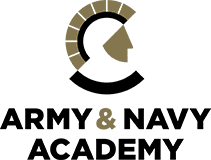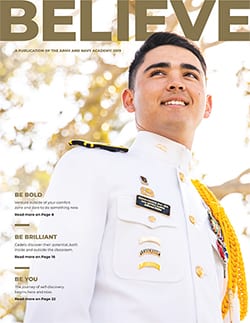Are you looking for a boarding school with ESL or ESOL courses? Attending a boarding school in the United States will build your confidence as you improve your English skills and prepare for college.

In this article, you will find a number of resources to help you find boarding schools with ESL or ESOL programs for middle and/or high school. In addition, beyond helping you find the right school, we have also offered key information about the differences between ESOL, ESL, ELL, EFL, and ESP. This will help you better understand the types of language programs to narrow your search.
First and foremost, keep in mind that there are over 300 boarding schools in the U.S. and Canada. Don’t let that overwhelm you. By using the resources below, you will be able to find a private boarding school that will admit you based on your current English proficiency level and enjoy an amazing boarding school experience.
- Check Review Websites – Boarding School Review is an excellent resource to narrow your search. On this site, you can compare schools and also apply filters to view rankings, locations, school types, and much more. Great Schools and Niche also list boarding schools, but they include private day schools as well. Make sure you apply filters to find boarding schools based on your preferences.
- Check Website Directories – The National Association of Independent Schools (NAIS) lists all of the accredited schools in the U.S. In addition, The Association of Boarding Schools (TABS) is also an excellent site to find a school with ESOL or ESL programs. Study International is a robust site for international students to find schools and universities.
- Contact International agents – Connecting with an international agent can prove helpful as they are familiar with many boarding schools in the United States. They will help you choose the right fit, complete the application process and sometimes even act as a local contact once you are enrolled. Agents, in particular, those vetted by ICEF, work with private boarding schools around the world. You can find an agent on the International Consultants for Education and Fairs (ICEF) website.
- Ask for Referrals – Talk to people you know. If you know someone who attended a U.S. boarding school during high school or middle school, you might want to ask them questions about their boarding school experience. They will be able to tell you about the academics, athletics, and campus life experience.
- Contact an International Admission Counselor – Boarding schools typically have someone who is well-versed in international admission questions. Don’t hesitate to contact an expert to learn more about how boarding schools review TOEFL exam scores and other application information. If the counselor finds you are not the right match for the school, they will often provide other school options for you to consider.
Interested in a Specific Type of Boarding School?
Boarding School Review and The Association of Boarding Schools both provide specific information on every high school and middle school. Check their websites and filter by location, all boys, all girls, military, religious schools and other categories.
If you just want to go directly to some boarding school website sites to explore what they have to offer, the lists below will get you started. All of these schools offer ESL or ESOL programs for high school international students, but they vary by school type, location, and other factors. These are all non-denominational boarding schools in order to keep the lists broader.
- All-boys boarding schools – The Boarding School Review list includes: The Kiski School (PA), Blue Ridge School (VA), Bridgton (ME), Cardigan Mountain School (NH) Chaminade College Prep (MO), Eaglebrook School (MA), Grand River Academy (OH), Georgetown Prep (MD), The Oxford Academy (CT), The Phelps School (PA), Trinity-Pawling (NY) and Army and Navy Academy (CA).
- All-girls boarding schools – The Boarding School Review list includes: Foxcroft School (VA), The Madeira School (VA), Miss Hall’s School (MA), Chatham Hall (VA), Forest Ridge (WA), Grier (PA), Stoneleigh Burnham School (MA), Westover School (CN), and Branksome Hall (Asia and Canada).
- Best ESL Schools – The Boarding School Review list includes several military academies with ESL or ESOL programs. They are generally more flexible when it comes to TOEFL scores and admission standards The list includes: Admiral Farragut Academy (FL), Army and Navy Academy (CA), Culver Academies (IN), Missouri Military Academy (MO), Randolph Macon (VA), Riverside (GA), St. John’s Northwestern (WI), and Valley Forge (PA).
Most military academies for middle and high school are college preparatory. Military schools offer a structured environment to acquire self-discipline, motivation, strong character and prepare for college. Most graduates of military schools, in particular, Army and Navy Academy, an all boys school for grades 7-12, boasts matriculation to prestigious 4-year colleges and universities. This school offers a strong ESOL program for both high school and middle school students.
Keep in mind that some military schools are more college prep focused than others, some are denominational, and they vary in terms of location. If you do not possess advanced English skills based on TOEFL score requirements, strongly consider applying to a military academy in the U.S.
Highly Proficient in English?
These boarding schools do not offer ESL or ESOL programs; however, they do accept international students based upon rigorous standards. Bear in mind, these schools are highly competitive and often have long wait lists. A number of locations have been noted below, so you can check out schools on the east coast as well as some of the best boarding schools in California, Arizona, and Texas.
- Highly Selective Boarding Schools without ESL or ESOL – These schools have very rigorous admission standards and require advanced level English proficiency. This list includes, but is not limited to the following: Phillips Academy (MA), Phillips Exeter Academy (NH), Choate Rosemary Hall (CT), The Lawrenceville School (NJ) Deerfield Academy (MA), The Thacher School (CA), Cate School (CA), The Webb Schools (CA), Woodside Priory (CA), Oregon Espiscopal School (OR), The Athenian School (CA), Besant Hill School (CA), Midland School (CA), The Hockaday School (TX), and Verde Valley (AZ).
What Type of ESL or ESOL to Choose?
It is important to evaluate different language programs for international students, but keep in mind that most boarding schools typically offer either an ESL or ESOL program.
Given that many international students know multiple languages, ESOL is becoming the more common acronym at boarding schools.
Nevertheless, knowing all the differences in language programs can be confusing, so let’s explore the differences between ESL, ESOL, ELL, EFL, and ESP. The content below is based on a blog post by Heidi Hyte, Reading Horizons Curriculum Director.
ESL meaning: English as a Second Language is learning English in a country where English is dominantly spoken or the official language. For example, students from non-native English-speaking countries who come to the U.S. and Canada for an extended time learn English as a Second Language. They acquire English to communicate in the dominant language spoken in the community where they reside.
EFL meaning: English as a Foreign Language is learning English in a non-English-speaking country. For example, students in China who are learning English are considered EFL students because English is not the country’s official language. But if those same students were in the U.S. learning English, they would be regarded as ESL students.
ESOL meaning: What is ESOL? The meaning of the initialism ESOL is English for Speakers of Other Languages. It applies to both ESL and EFL contexts. This term was created because some individuals argue that when students are learning English in a native English-speaking country (ESL), these students are not necessarily learning a second language. It could be a student’s third or even fourth language. Then, English as a Second Language is limiting and not fully comprehensive in its description.
ELL meaning: English Language Learners is commonly used in K-12 environments. However, it has been brought to my attention that some school districts prefer to use the term ESOL (English for Speakers of Other Languages) to describe their student population. This could simply be a preference issue.
ESP meaning: English for Special Purposes includes students learning English in the context of a particular field, profession, or topic. For example, when I was teaching legal English in China, I was teaching English in the law context. These students were learning English to study law through an American university where the professors were all native English speakers.”
Find the Right Boarding School
Now that you have some resources to find the right boarding school and you know more about the various English language programs, why not begin your exploration of boarding schools?
Check school sites to view the kinds of ESL or ESOL courses they offer for middle school or high school. Also, don’t hesitate to contact the Admission Office. They will help address your questions about academics, support services for international students, athletic programs, and extracurricular activities.
They will also support you as you apply online, complete your student interview by remote, and assist with translated transcripts. They have a wealth of information about the process of obtaining the I-20 (Certificate of Eligibility for Non Immigrant (F-1) Student Status for Academic and Language Students, airport access, campus life, and much more. Sometimes, they even speak your language!
Remember to use all of the resources available: review sites, association websites, referrals, agent contacts and direct contact with boarding schools of your choice.
International admission counselors will help guide you! Feel free to request information to address your questions.


